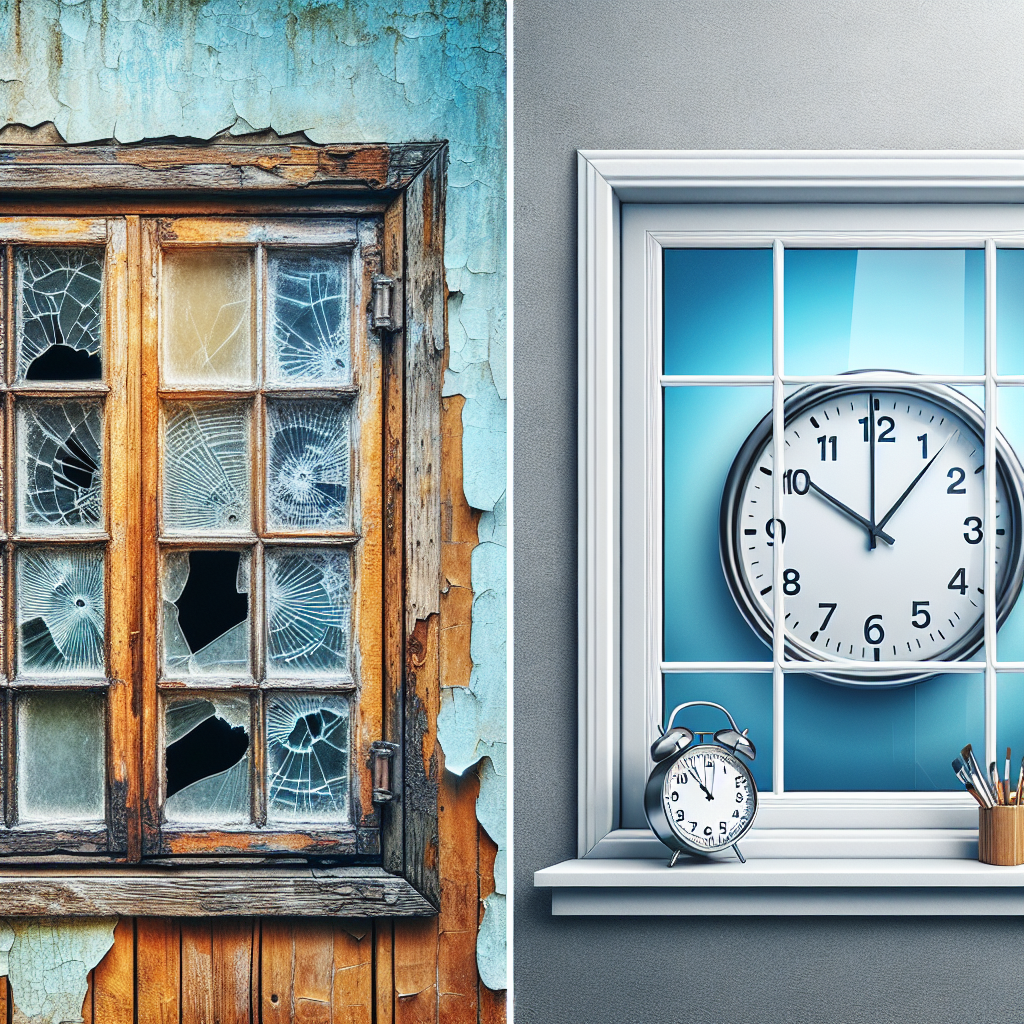When it comes to maintaining the comfort and energy efficiency of your home, your windows are a critical component. However, just like any other part of your home, they don’t last forever. But how do you know when it’s time for a window upgrade? Here are some key indicators that will help you determine whether your windows are ready to be replaced.
Understanding the Lifespan of Windows
Before diving into the signs that indicate your windows need replacement, it’s essential to understand their lifecycle. Most traditional windows last between 15 to 30 years, depending on the materials and construction quality. However, external factors such as climate, maintenance, and exposure to elements can significantly affect their lifespan. If your windows are nearing or exceeding this timeframe, it may be time to start evaluating their condition.
1. Increased Energy Bills
One of the most apparent signs that your windows are due for replacement is a noticeable increase in your energy bills. Older or outdated windows often lack proper insulation, allowing drafts and outside temperatures to seep into your home. If you find yourself cranking up the thermostat during winter or blasting the AC in summer, your windows might be to blame.
Energy Efficiency Matters
Investing in energy-efficient windows can lead to long-term savings on your utility costs. Look for windows with ENERGY STAR certification, as they are designed to minimize energy loss.
2. Visible Damage
Take a close look at your windows. Are there any cracks, chips, or gaps? Physical damage is a clear sign that your windows need replacing. Not only do these issues affect the aesthetics of your home, but they can also compromise energy efficiency and accessibility.
Rotting Frames and Sashes
If you have wooden windows, keep an eye out for signs of rot. Wood can deteriorate over time due to moisture exposure, making it essential to replace rotted sections or entire windows.
3. Condensation Between the Panes
Have you ever noticed foggy or cloudy windows? This often indicates a problem with the seal between double- or triple-pane windows. When condensation builds up between the panes, it means the insulation is compromised. Unfortunately, this issue is unfixable without replacing the affected windows.
The Importance of a Good Seal
A proper seal ensures that air and moisture don’t infiltrate your home. If your windows are losing their seal, it significantly reduces their energy efficiency, leading to higher bills and discomfort.
4. Difficulty in Operation
Are you struggling to open or close your windows? Sticking or improperly functioning windows can be an annoyance and a safety hazard. If you find yourself exerting too much effort to operate your windows, it may signal that the mechanisms have worn out and the windows need replacing.
Safety First
Remember, windows serve as an emergency exit in case of a fire. If you can’t easily open your windows, it’s a serious concern worth addressing sooner rather than later.
5. Noise Pollution
Do you find it hard to enjoy the peaceful moments in your home due to outside noise? Inefficient or old windows can allow excessive noise to infiltrate your living spaces. Upgrading to modern, soundproof windows can dramatically enhance your living environment, providing a quieter and more serene atmosphere.
Choose Quality Materials
When selecting new windows, consider options that are specifically designed to reduce noise, such as those with thicker glass or specialized sound-dampening features.
6. Style and Aesthetic Concerns
While functionality and efficiency are paramount, we can’t ignore aesthetics. If your windows are outdated, or simply don’t match the character of your home, it might be time for a cosmetic overhaul. New windows come in a variety of styles, colors, and materials that can significantly enhance your home’s curb appeal.
Conclusion: The Time for Change
Upgrading your windows is not solely a matter of function; it’s an investment in your home’s comfort, energy efficiency, and value. If you notice any of the key indicators discussed above, it may indeed be time for a change. Modern windows can provide a more comfortable living environment, save you money on energy bills, and boost your home’s aesthetic appeal.
FAQs: Making the Decision Easier
Q: How much does it typically cost to replace windows?
A: The cost can vary based on the type of windows, materials, and installation. Generally, the investment can range from $300 to $1,000 per window.
Q: How long does window installation usually take?
A: Most window installations can be completed in a day, depending on the number of windows and the scope of the project.
Q: Can I replace windows in stages?
A: Absolutely! It’s perfectly fine to replace windows in phases, especially if you’re on a budget.
By keeping an eye on the indicators mentioned, you can make an informed decision about when to replace your windows. In doing so, you’ll create a more comfortable, energy-efficient, and beautiful home environment. Don’t delay making this significant change; your home will thank you!


